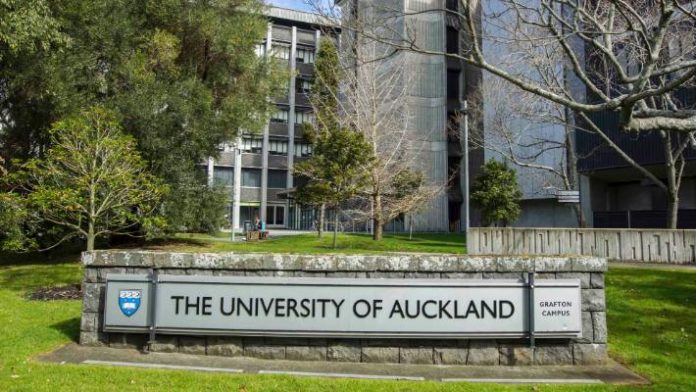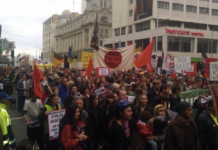The rise of populism and nationalism in some of the world’s leading democracies, along with declining trust in political institutions, has led to questions over whether democracy can survive.
When we think of democracy, we tend to think of democratic institutions such as free and fair elections, and parliament. But democratic societies also have another key feature: cultural values. These are the set of values generally shared and agreed upon by citizens, such as an openness to diversity and acknowledgment of individual rights.
There has long been debate over which is the prime mover in the rise or fall of democracy: is it the values citizens hold dear, such as tolerance for diversity, or is it the democratic institutions that, for example, deliver free and fair elections? Which comes first, the establishment of political institutions with the values following, or is it other way around?
In an attempt to answer that question, an international team of researchers, including from the University of Auckland, used data from the World and European Values Survey to look at more than 100 of the world’s democracies to trace the rise and fall of political institutions and citizens’ values over the last century.
The results show that it is cultural values that precede political institutions and in particular, values of openness towards diversity. This indicates that the values generally held by citizens are what predict the emergence and maintenance of democratic institutions.
In contrast, trust in political institutions, even when high, does not necessarily lead to democracy. While high levels of trust strengthens democratic institutions in nations that are already democratic, in autocratic nations, greater trust in institutions actually makes a future shift to democracy less likely.
For example, Argentina shows consistently low confidence in political institutions and so transitioned repeatedly between democracy and autocracy during the 20th century. Conversely China, which shows consistently high confidence in political institutions, has been a stable autocracy over the same period.
“It is often assumed that if you install democratic institutions, then democratic values and stability will follow, as we heard in the lead-up to the 2003 US-led intervention in Iraq,” says Professor Atkinson from the University of Auckland’s School of Psychology.
“But our results show this is not borne out by history. Democratic institutions tend to be unstable without democratic values, and ongoing instability in Iraq is a testament to that.
“The study findings are important at a time when many democracies, like the United Kingdom, the United States and in Europe, are under pressure from growing distrust in politicians and political institutions.”
Democracy is actually a rare thing in human history but has increased over time, with 20 countries in 1950 considered democratic, rising to 60 by the year 2000.






Could you please define exactly what you mean by “democratic institutions?” Are they the holding of elections or are they the political bodies that when in power organise those elections? You seem to swap from one concept to the other.
And what is “populism” other than democracy working? Please explain. And what is nationalism apart from a democratic nation wishing to maintain it’s own identity? And with it the power to maintain a democracy within a manageable compas rather than having it outsourced to global interests .
The slur the terms “nationalism ” and ” popularism” have come to imply is the threat to democracy, not the searching of voters for outlying figures that represent the kind of priorities that the old political parties no longer represent.
D J S
Our press release today. 7/12/19.
“CEAC – University of Auckland asks ‘Can democracy survive’?
Subject; Can democracy survive?
https://www.auckland.ac.nz/en/news/2019/12/03/can-democracy-survive-.html
Citizens Environmental Advocacy Centre Incorporated (CEAC)
Press release 8th December 2019.
CEAC believes that Democracy and its partner freedom is based on;
• firstly; Our belief that we can always ask our elected politicians for support for issues of concern to our communities.
• Secondly; To always trust our elected politicians to do what is in our collective best interests, while always being ‘our advocate’ for issues of concern that we request our politicians to ‘mitigate’ on our behalf to carry out.
• Thirdly; allow us and our elected politicians free speech.
This long held belief the fabric of our democratic system is now becoming frayed and under attack by new pressures placed upon all politicians after any one politician makes a simple blunder and then goes under such intense scrutiny by the media.
Then secondly is attacked by their political adversaries alike and the result is that it often forces restrictions to be placed upon the very politicians that we the people are trusting upon us to advocate for our issues that we ask them to mitigate for us.
Quote; Professor Quentin Atkinson – University of Auckland;
“When we think of democracy, we tend to think of democratic institutions such as free and fair elections, and parliament. But democratic societies also have another key feature: cultural values.
These are the set of values generally shared and agreed upon by citizens, such as an openness to diversity and acknowledgment of individual rights.
There has long been debate over which is the prime mover in the rise or fall of democracy: is it the values citizens hold dear, such as tolerance for diversity, or is it the democratic institutions that, for example, deliver free and fair elections? Which comes first, the establishment of political institutions with the values following, or is it other way around?
In an attempt to answer that question, an international team of researchers, including from the University of Auckland, used data from the World and European Values Survey to look at more than 100 of the world’s democracies to trace the rise and fall of political institutions and citizens’ values over the last century.
The results show that it is cultural values that precede political institutions and in particular, values of openness towards diversity. This indicates that the values generally held by citizens are what predict the emergence and maintenance of democratic institutions.
In contrast, trust in political institutions, even when high, does not necessarily lead to democracy. While high levels of trust strengthens democratic institutions in nations that are already democratic, in autocratic nations, greater trust in institutions actually makes a future shift to democracy less likely.
Un-quote;
CEAC says; ‘We were always promised support from our elected politicians’;
‘Our case to consider;
Before all General and Local elections political hopefuls fill our papers and media with offers to work on our behalf on issues that concern our communities, and even leave cards in our mailboxes promising to do this and that to make our lives better, while offering to make themselves available to us when we need their help.
The latest result of Kris Faafol is a case in point to highlight our demise of democracy;
Fact; Kris is a highly regarded and respected local politician known to work tiredly for his constituents he is now seen to be mired in simply wanting to assist in the way we expect to act as an advocate for our concerns whatever they be.
In his case it was a close friend who asked for help and that was a normal request.
Our own family case is now being highlighted;
Our family in Napier had a similar issue about an immigration issue concerning what seemed as an ‘unfair treatment given by Immigration NZ to a family member’ after contacting the immigration agency, only after the advice given from the local Napier MP’s office.
As our son’s parents; we explicitly wrote a letter to our local elected Napier MP Stuart Nash to ask for a meeting with him, to review the ‘unfair case’ for us as our family representative parliamentary politician.
We met with Stuart, with our letter, and he advised us that he could not personally become involved, and we immediately felt that was odd, but accepted this for the time.
Our MP arranged for his staff to contact the immigration officials our son had spoken to about the immigration request he was about to lodge about the details which surrounded his fiancé to obtain a work permit as she was a German national about to marry our son.
She had several University documents demonstrating her high value work experience to NZ then but the immigration was not helpful to our son saying “don’t send us an application for a work visa for your fiancé as we will ignore the request.
This was a bitter pill to swallow for any family, especially a NZ born family.
Answer; ‘will democracy survive’?
If the current increasing restrictions are placed upon all politicians after bungling by continuing bureaucratic failure, causes more and more restrictions to be placed on our local and government/opposition parliamentary members, over any subject or event it will damage our democracy to the point that we will see only corruption emerge as ‘bought’ politicians advance the wishes of the rich, – while many will suffer, thus undermining our democracy that many of our fallen hero’s fought and died for us all on foreign fields to preserve our democracy.
“The price of freedom (and democracy) is constant vigilance” – (US President) Thomas Jefferson – and must be conducted by the public not the state.
End.
Comments are closed.